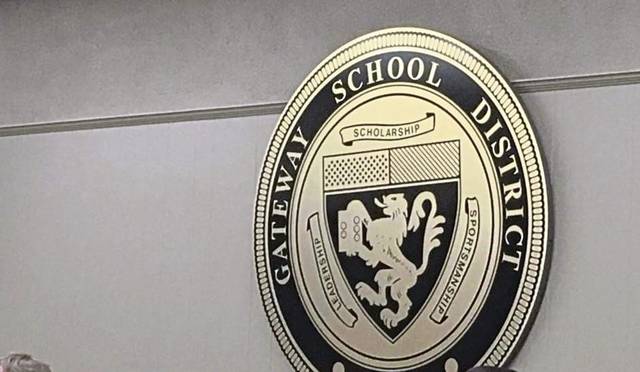The Gateway Board of School Directors has joined a chorus of education administrators across the state calling for public charter school funding reform.
The board unanimously approved a resolution Feb. 18 that called on legislators to reform the “flawed” and “unfair” formulas used to determine how charter schools are funded.
Gateway’s resolution is identical to one drafted by the Pennsylvania School Board Association, which began circulating drafts to PSBA members in January.
Several school districts, including Pittsburgh Public Schools, have recently passed resolutions like the one drafted by PSBA. In Pittsburgh, the school board is also calling for a statewide moratorium on all new cyber charter schools.
“These payments are calculated in a manner which requires districts to send more money to charter schools than is needed to operate their programs and places a significant financial burden on districts’ resources and taxpayers,” reads the resolution, which was presented by Rick McIntyre, school board vice president.
Read the resolution in full here and by downloading the link that reads “Resolutions Presented by Board Members.”
“This is not a new budget challenge, but it’s a significant and rising one and its imbalance is causing grave issues for the school districts. We need attention paid to this because it’s impeding the districts’ ability to dedicate funding to other areas. Our work will continue until the situation is righted,” said Nathan Mains, the PSBA’s CEO.
Ana Meyers, Executive Director of the Pennsylvania Coalition of Public Charter Schools, opposes the resolutions.
“They’re not factual,” she said.
Public charter school tuition, both for regular and special needs students, is based on a statutory funding formula, according to the Pennsylvania Department of Education.
However, the way charter schools are paid was first set up in 1997, when Pennsylvania’s Charter School Law was adopted, the PSBA resolution argues.
The resolution also argues the state’s method for calculating the cost of special education was changed in 2014, but those changes only apply to public schools, not charters.
Meyers said charter tuition rates are also partly based on a school district’s yearly expenditures.
“So the only way that tuition rates increase is if a local school district spends more,” she said, adding that retirement services such as pensions for teachers have exacerbated school district budgets.
Meyers said that, since 2009, retirement service costs in school districts around the state have increased by 726%. She said enrollment at charter schools has doubled, while the cost of charter school education has risen only 245%.
Meyers also said school districts across the state are keeping tuition money, up to 25%, that should follow students when they decide to enroll in charter schools.
“Instead of voting to endorse legislation that isn’t even publicly available yet for their constituents to review, school boards should shift their time and efforts to improving academic outcomes for their students,” Meyers said.
There are two charter schools — Spectrum Charter School and Propel Schools in Pitcairn — within Gateway’s boundaries.
Spectrum is a public charter school that touts itself as “the first autism-specific charter school in the United States” and now enrolls 32 children aged 13 to 21 from 13 school districts around the region. Its first day of school was in September 2000.
Michele Gutman, board president at Spectrum, said the notion that all charters receive more money from districts than it costs to educate children “simply is not true.”
“Because we largely educate special education kids with intensive intervention, our costs are significantly higher than the district’s average. And for that reason, the tuition we get from the 14 school districts does not actually cover our entire budget,” she said at a Feb. 11 Gateway board meeting.
According to PDE records, Gateway paid $13,793 per nonspecial education student and $37,097 per special education student attending charter schools in the 2019-20 school year.
Last school year, 2018-19, four students attended Spectrum, costing Gateway $153,000, said Paul Schott, the district’s business manager.
In 2017-18, the latest data available from PSBA’s PA Charter Change organization, the average cost for special education students at charter schools amounted to $24,200 per student.
Opening its doors in 2012 at the former Pitcairn Elementary School building along Agatha Street, Propel now enrolls 316 students. There were 72 Gateway students enrolled there in the 2018-19 school year, Schott said. He said their tuition cost Gateway nearly $1.2 million that year.
The Pennsylvania Association of School Business Officials said the average cost for nonspecial education students attending charter schools in Allegheny County in 2018-19 was $14,289.
In all, Gateway spent $3.5 million on charter school education tuition for 215 students in the 2018-19 school year, Schott said. The other 139 Gateway students who didn’t attend Spectrum or Propel enrolled in area charter schools.
Tina Chekan, Propel’s superintendent, reiterated the argument that traditional schools keep money that should go to charter school students. She also said everyone needs to stay focused.
“Pennsylvania’s law should equally support public charter schools as well as traditional public schools. We all need to stay focused on what is best for kids and families,” Chekan said in an emailed statement.
Despite charter schools’ arguments, Gateway officials have lamented the state’s funding formulas before, essentially saying the district’s financial burden is becoming too heavy to carry.
Schott said the district sends mailers to charter students to try to win them back or at least get them to enroll in the district’s K-12 cyber charter school, which is operated under the Allegheny Intermediate Unit and offers students a Gateway diploma.
Gateway’s resolution calling for charter school funding reform comes after Gov. Tom Wolf laid out a plan in February that would cut the amount of money school districts are required to pay for their charter school students.
He estimated the plan would save traditional schools $280 million annually.








